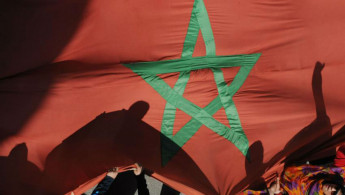Is Morocco's royal court preparing for the opposition to take power?
The reopening of the case sparked an angry response from the JDP, an Islamist party which is considered supportive of the country's royal family.
Saadeddine Othmani, Morocco's prime minister and the leader of the party, attacked the judicial system in Fes for deciding to retry Hamidine. "Reopening the closed cases deeply strikes the stability of juridical ruling," Othmani told a meeting of the party in Marrakech.
Hamidine has been ordered to comply with a judicial follow-up for "involvement in the premeditated murder" of Mohamed Ait Lijd Benaissa, who was an activist with the Moroccan students' movement during the 1980s and early 1990s before he was killed in 1993.
According to the students, Mohammed Ait was "dragged out of a taxi by several agents who smashed his head with saddles with nails, chains, swords and side-walk rocks".
The case has come to symbolise the repression of Moroccan student activists in their fight for educational, economic and social rights.
But a new fight has been ignited over social media, with leftists praising the ruling and JDP leaders saying they would not "surrender our brother".
 |
Will the governing party continue to resist a judicial order? If so, how would that create a divide between the executive and the judiciary? |  |
Nevertheless, the Hamidine issue represents a golden opportunity for multiple opposition groups to renew their activism.
Will the governing party continue to resist a judicial order? If so, how would that create a divide between the executive and the judiciary? The judiciary is close to the Makhzen, the governing institution of Morocco, which is the right hand of the royal palace.
The risk of such a clash with the palace will concern the JDP, brought into power by the king during the critical time of the Arab Spring.
But with events continuing to unfold, the possibility that the palace has another choice to pick is still on the table.
The moanarchy-supporting Authenticity and Modernity Party has always employed the rhetoric of "being there for the oppressed", while King Mohammed VI is seeking to present Morocco as the model of a modern state in north Africa, launching satellites and even establishing the fastest train network in the African continent.
A new warming of relations between the Authenticity and Modernity Party and the palace is yet possible, depending on the PJD's reaction to a potential verdict ruling against Hamidine.
The situation embarrasses the PJD and puts it in direct confrontation with liberal student movements. Facing decreasing popularity - especially given that Othmani is not as charismatic as his predecessor, Abdelilah Benkirane, the attempt to win the palace's satisfaction is becoming harder for Othmani and his party.
Habibulah Mohamed Lamin is a journalist formerly based in the Western Sahara refugee camps in Tindouf, Algeria. He has worked as a translator and is director of Equipe Media Branch, a group of media activists covering Western Sahara. His work focuses on the politics and culture of the Maghreb.
Follow him on Twitter: @habibullahWS



